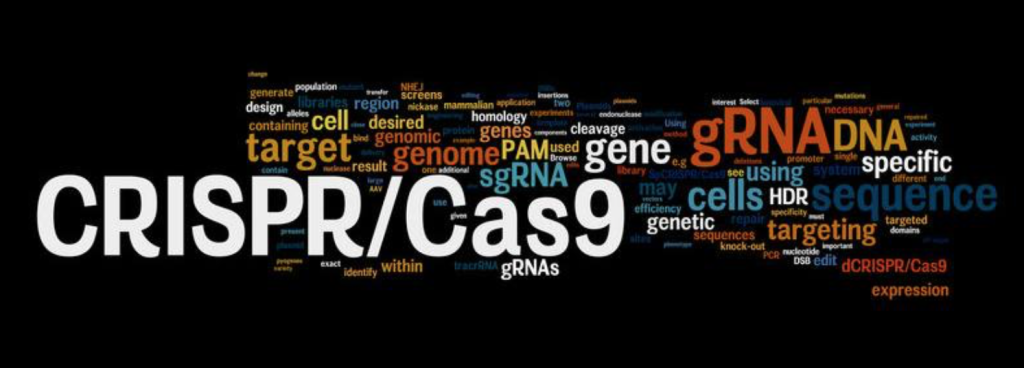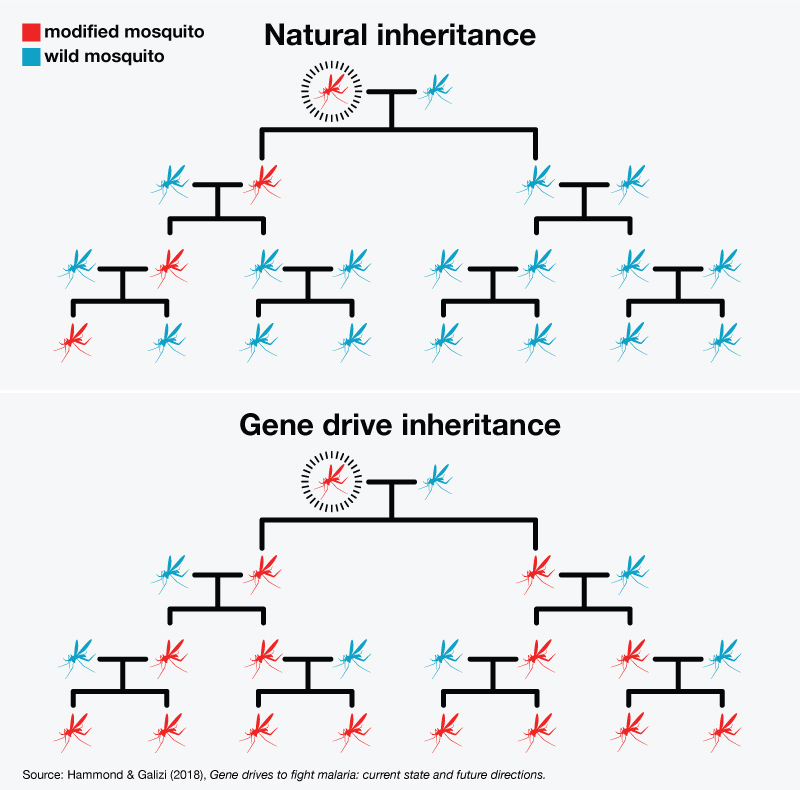By: Samantha Avina On Friday February 21st the Rutgers Eagleton Institute of Politics in collaboration with the Rutgers iJobs program hosted the CRISPR Governance Workshop to discuss the current issues in developing policy to regulate genome editing. The objective of this workshop was to encourage open discussion about the use of genome editing technologies and give students insight into potential careers in science policy. Clustered Regularly Interspaced Short Palindromic Repeat (CRISPR) technology is a novel biotechnological tool that allows direct editing of a gene of interest and which has been utilized in biomedical research and diagnostic tools.
The ability to make such changes to the human genome has stoked contentious debate amongst politicians and scientists regarding if and how this technology could be applied as a therapeutic agent.
Debates predominantly focus on whether CRISPR technology should be used to make germline genomic edits that pass from generation to generation.
At the Eagleton Institute of Politics workshop, science and policy experts were invited to speak as voices on different sides of the debate. Keynote speaker Dr. Jonathan Moreno, renowned bioethicist and Professor of Ethics at The University of Pennsylvania began the workshop by giving an overview of the ongoing debate and how similar issues have been treated in the past.
[caption id="attachment_3115" align="alignleft" width="660"] photo courtesy of mayo clinic 2016[/caption] “We need to have science diplomacy with other institutions internationally and domestically,” Dr. Moreno stated when discussing the recent backlash to Dr. He Jiankui’s genome editing experiments in 2019. Dr. He’s controversial work resulted in two human embryos born to term in China with permanent deletion of the CCR5 gene in an attempt to reduce susceptibility to HIV. His work was publicly condemned by the scientific community who demanded a moratorium on human genome editing with CRISPR technology and led to major public outcry. Dr. Moreno went on to discuss how the ability to regulate genome editing technology needs to be present in both authoritarian and democratic institutions, where it was previously thought scientific discovery thrived predominately under a democratic system.
photo courtesy of mayo clinic 2016[/caption] “We need to have science diplomacy with other institutions internationally and domestically,” Dr. Moreno stated when discussing the recent backlash to Dr. He Jiankui’s genome editing experiments in 2019. Dr. He’s controversial work resulted in two human embryos born to term in China with permanent deletion of the CCR5 gene in an attempt to reduce susceptibility to HIV. His work was publicly condemned by the scientific community who demanded a moratorium on human genome editing with CRISPR technology and led to major public outcry. Dr. Moreno went on to discuss how the ability to regulate genome editing technology needs to be present in both authoritarian and democratic institutions, where it was previously thought scientific discovery thrived predominately under a democratic system.
“To flourish, science needs democracy as the lifeblood of good science…are we sure we can say that now?, Dr. Moreno stated concluding his talk his talk.
After Dr. Moreno’s talk, Drs. Patrick Hill and Wise Young of Rutgers University both gave lectures on the potential of CRISPR use in the future. With dissimilar perspectives, their talks and the following panel discussion gave attendees a glance into the heart of this controversial debate. Dr. Patrick Hill, an associate professor from the Rutgers School of Planning and Public Policy stressed the importance of a prudent approach to CRISPR use stating, “Just because we can utilize this technology doesn’t necessarily mean we should…editing is not new, this is different in degree but not kind.” Alternatively, Dr. Wise Young from the Rutgers Center for Collaborative Neuroscience argued in support of CRISPR use in germline editing and proposed that there is no intrinsic difference between molecular, pharmacologic, or genetic therapy. While Dr. Young condemned inappropriate use of the technology, he noted that people are bound to start trying to use CRISPR. He explained that this will happen despite policy makers and the implementation of proper use checkpoints to regulate the technologies use in a safe and effective manner. “I don’t think memorandums are good”, stated Dr. Young, “We shouldn’t be afraid of genetics. We will have a lot of safety nets to make sure things don’t get out of hand.” Following the speaker lectures, an open panel was formed where attendees could interact with the invited speakers and ask questions involving science policy and CRISPR regulation.
Rutgers faculty and students asked questions ranging from what the extent of science communication should be, to how to minimize CRISPR off target effects and who decides what will happen with this technology in the future.
Guest speakers had an array of responses ranging from pragmatic and opportunistic utilization of the CRISPR gene editing tool, to conservative and prudent approaches to its use. Members of the Rutgers community were also able to participate in an interactive science policy exercise and allow their own opinions to flourish in round table discussions. The exercise focused on the example of CRISPR engineered gene drive constructs that result in the reduction of disease vector mosquito populations. [caption id="attachment_3117" align="aligncenter" width="800"] photo courtesy of Bill and Melinda Gates Foundation sourced from Hammond and Galizi (2018)[/caption] Specifically, the gene drive is constitutively expressed and passed down vertically through generations resulting in the sterilization of subsequent progeny to reduce or completely terminate the mosquito population. Just as in the panel discussions, attendees had many factors to consider when determining if gene drive use was ethical, environmentally sustainable and controllable. The CRISPR regulation of gene editing workshop held by the Rutgers Eagleton Institute of Politics in collaboration with the iJobs program gave students insight into the incredible world of science policy and all the complexity it entails. At this workshop students had the opportunity to grapple with the issues of CRISPR currently at the forefront of this contentious debate. This event demonstrated to students that science policy is a critical crossroad of regulation and scientific advancement. Those interested in shaping laws to regulate genome editing and other biotechnology inventions will find a career in science policy delightfully exciting and rewarding! Junior Editor: Brianna Alexander Senior Editor: Tomas Kasza
photo courtesy of Bill and Melinda Gates Foundation sourced from Hammond and Galizi (2018)[/caption] Specifically, the gene drive is constitutively expressed and passed down vertically through generations resulting in the sterilization of subsequent progeny to reduce or completely terminate the mosquito population. Just as in the panel discussions, attendees had many factors to consider when determining if gene drive use was ethical, environmentally sustainable and controllable. The CRISPR regulation of gene editing workshop held by the Rutgers Eagleton Institute of Politics in collaboration with the iJobs program gave students insight into the incredible world of science policy and all the complexity it entails. At this workshop students had the opportunity to grapple with the issues of CRISPR currently at the forefront of this contentious debate. This event demonstrated to students that science policy is a critical crossroad of regulation and scientific advancement. Those interested in shaping laws to regulate genome editing and other biotechnology inventions will find a career in science policy delightfully exciting and rewarding! Junior Editor: Brianna Alexander Senior Editor: Tomas Kasza